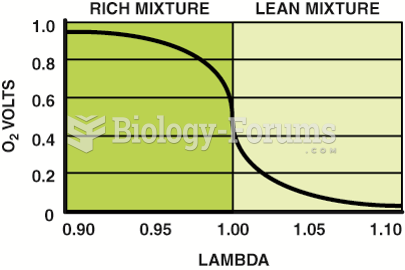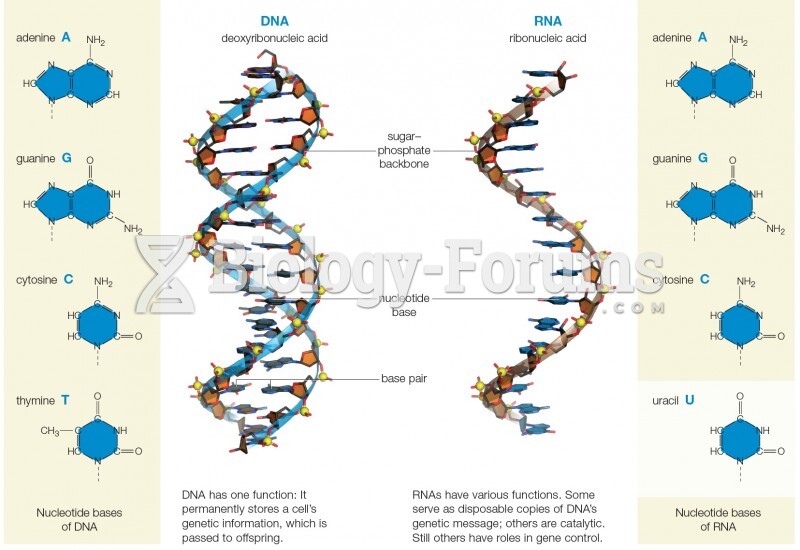|
|
|
Critical care patients are twice as likely to receive the wrong medication. Of these errors, 20% are life-threatening, and 42% require additional life-sustaining treatments.
Your skin wrinkles if you stay in the bathtub a long time because the outermost layer of skin (which consists of dead keratin) swells when it absorbs water. It is tightly attached to the skin below it, so it compensates for the increased area by wrinkling. This happens to the hands and feet because they have the thickest layer of dead keratin cells.
Medication errors are three times higher among children and infants than with adults.
There are more nerve cells in one human brain than there are stars in the Milky Way.
There are actually 60 minerals, 16 vitamins, 12 essential amino acids, and three essential fatty acids that your body needs every day.
 Roller lifter from a GM Duramax 6.6 liter V-8 diesel engine. Notice the size of this lifter compared ...
Roller lifter from a GM Duramax 6.6 liter V-8 diesel engine. Notice the size of this lifter compared ...
 When removing spark plugs, it is wise to arrange them so that they can be compared and any problem ...
When removing spark plugs, it is wise to arrange them so that they can be compared and any problem ...





